8 ways to fix 'Excel Cannot Open Because The File Format Is Not Valid' error
Microsoft Excel is an important tool for many people in their academic and professional endeavors. A frequent challenge users encounter is encountering the error message "Excel cannot open the file because the file format or file extension is not valid" . This problem often arises when trying to open Excel files, effectively acting as a barrier blocking access to important data files.
In this article, we'll dive into what this error message means and, most importantly, how to resolve it to regain access to your important data. Whether the problem is invalid Excel file format or extension or the Excel file cannot be opened due to corruption, rest assured, there is a solution for your situation.
Solution 1: Check the spreadsheet file extension
The first step to solving the ' Excel file format or file extension is not valid ' issue is to verify that the file extension corresponds to the actual file format. Typically, spreadsheets created in Excel 2007 or newer versions use .xlsx as the file extension, while older versions use .xls. Incorrect file extensions can cause Excel to not recognize the file as valid.
1. Press Windows + E to open File Explorer. Navigate to the View tab and make sure the File name extensions box is selected.

2. Right click on the problematic Excel file and select Rename .

3. Try changing the file extension to the correct extension, if available. Alternatively, you can use online file conversion services, where you upload the file and choose the desired output format.
Solution 2: Repair corrupt Excel file
If you still see the error message, your Excel file may be corrupted. In such cases, 4DDiG File Repair can be a useful tool. This user-friendly software is capable of solving a variety of file problems, including problems with Excel documents not opening or displaying blank content. In addition, 4DDiG File Repair supports other file formats such as Word, PowerPoint and PDF.
Here's how to fix the 'Excel file format or file extension is not valid' issue using 4DDiG File Repair:
1. Install and launch 4DDiG File Repair on your Windows or Mac. Access the File Repair feature from the left sidebar, then click Add File(s) to upload your damaged Excel document.
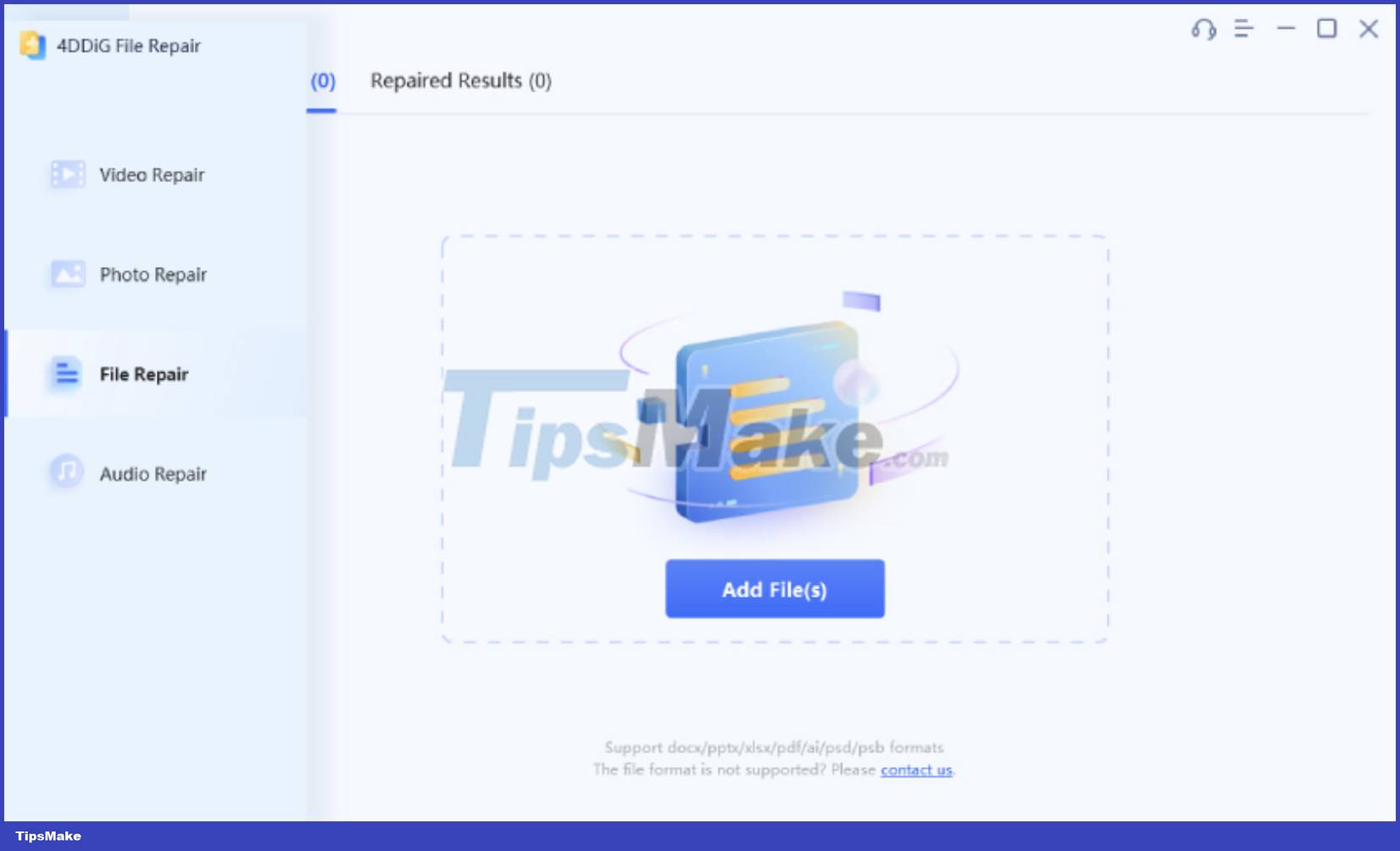
2. Click Start Repair to begin the repair process. 4DDiG File Repair will analyze and attempt to fix any problems in your files.

3. After repairing, review the file contents to confirm their integrity. Then, use the Export or Export Selected option to save the repaired Excel files to your computer.

Solution 3: Modify file permissions
Another way to solve the ' Excel cannot open the file ' problem is to make sure you have the necessary permissions for the file. Here's how you can check and modify your permissions:
1. Right-click on the file you cannot access and select Properties .

2. Go to the Security tab , then click the Edit button .

3. In the Group or user names section , select your user account and then give it Full Control .
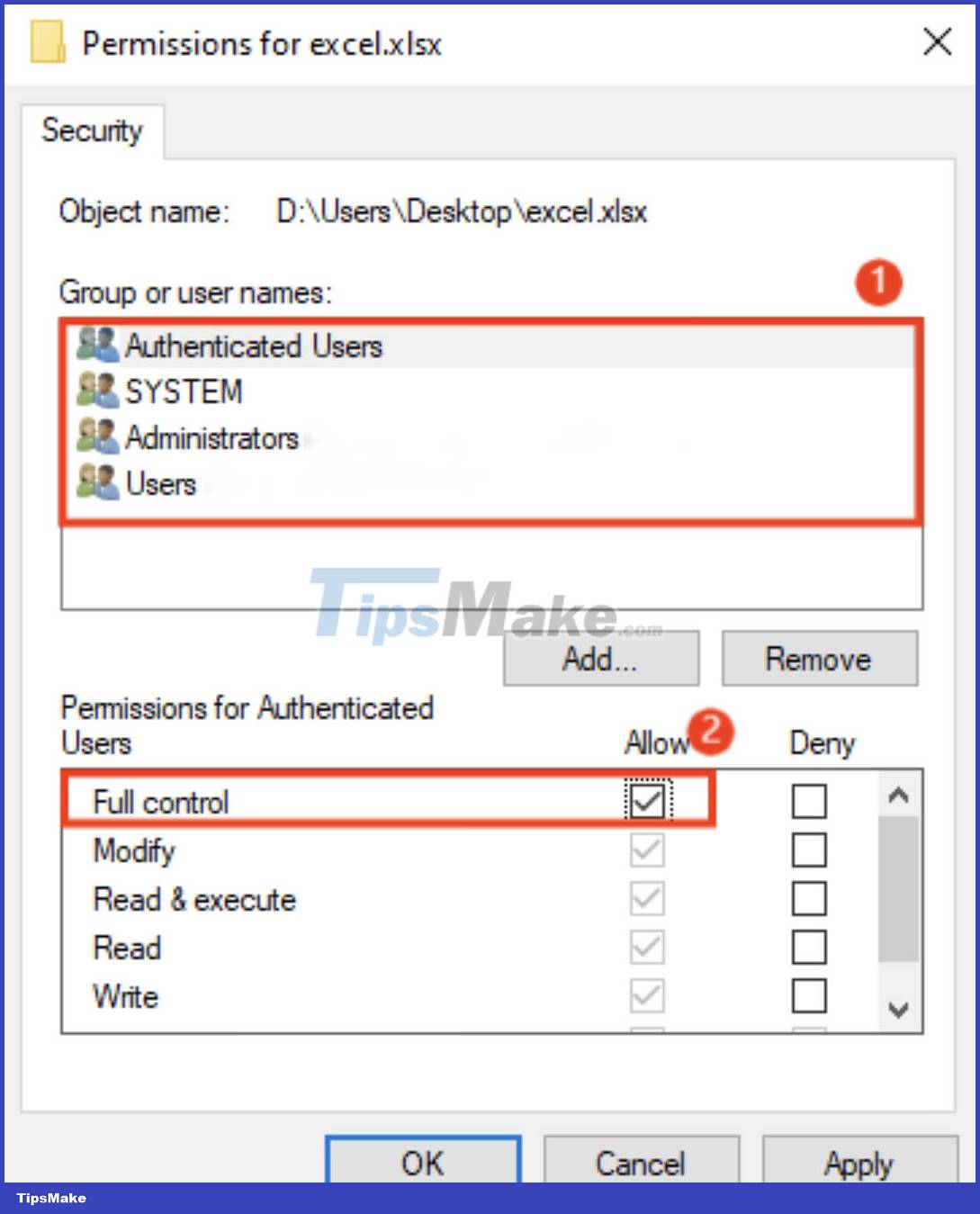
4. Click Apply > OK to confirm and save your changes.
Solution 4: Use the Open and Repair feature
To repair corrupted Excel files, you can use the Open and Repair feature, a tool available in Microsoft Excel. While useful, note that it may not work for severely damaged files. Here's how to use this feature to solve the ' Excel file extension not valid ' issue:
1. Open Microsoft Excel and go to the File tab . Then, select Open > Browse .

2. Find and select the problematic Excel file.
3. Instead of clicking Open directly , click the small arrow next to it and select Open and Repair from the menu.
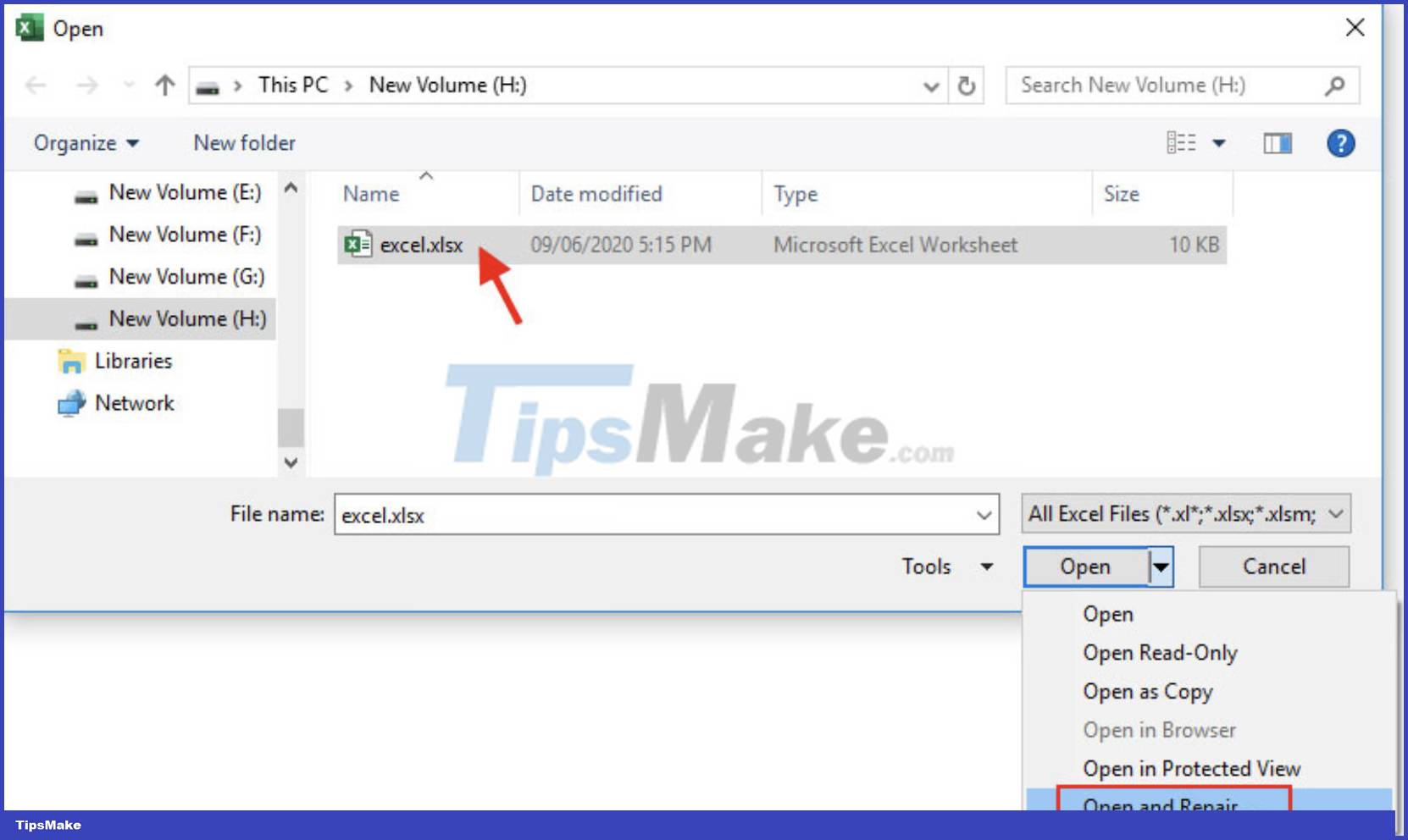
4. Click Repair to start the repair process.

Solution 5: Restore previous version using File History
If the ' Excel file extension not valid ' error persists, consider restoring a previous version of the file. However, be aware that this may result in the loss of recent content. Here's how:
1. Right-click the spreadsheet and select Properties from the context menu.
2. Navigate to the Previous Versions tab . If File History was enabled first, you will see a list of previous versions of the file.

3. Select the version you want to restore and click Restore .
Solution 6: Restore unsaved workbooks
Another method involves using Excel's built-in features to restore any previous versions of your workbook.
1. Open MS Excel and go to File > Info in the top left corner of the window.
2. Select Manage Workbook > Recover Unsaved Workbook .
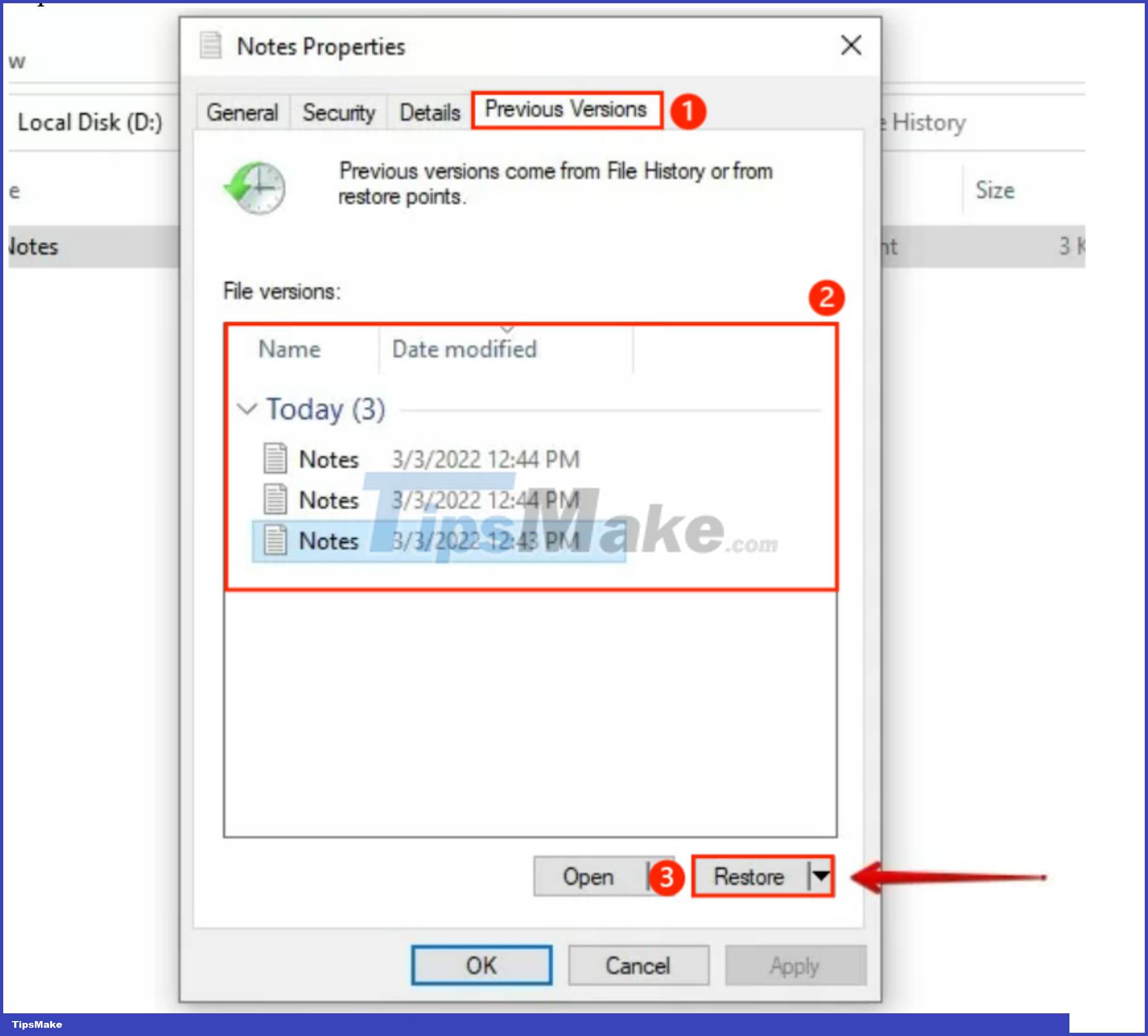
3. From the list of files displayed, open the inaccessible file and save it.
Solution 7: Open MS Excel in Safe Mode
Solving the ' Excel cannot open because the file format is not valid ' problem can sometimes be as simple as booting your computer into Safe Mode. This is especially effective when Excel conflicts with specific drivers or third-party software. Here's how to enter Safe Mode:
1. Press Windows + R on the keyboard and enter excel/safe in the Run dialog box .

2. Open Microsoft Excel in Safe Mode, click File > Options .
3. In the Options menu , go to the Add-ins section . Then select COM Add-ins and click Go .
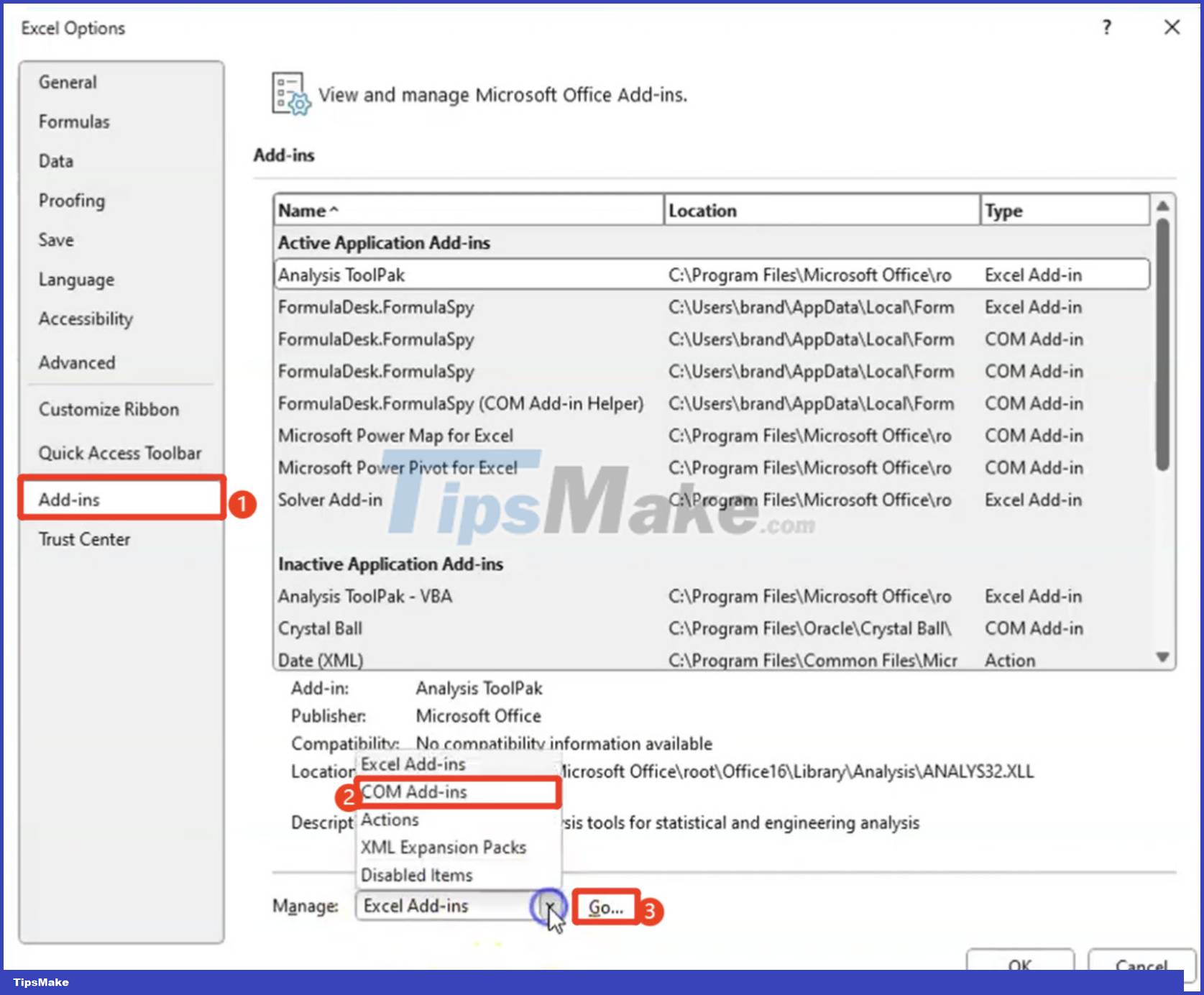
4. Uncheck one of the add-ins from the list that appears and click OK.
Solution 8: Turn off Protected View feature
The error ' Excel cannot open the file ' can also come from the Protected View feature on Excel, not just an invalid file extension or damaged file. To turn off this feature, follow these steps:
1. Open MS Excel, click File in the top left corner, then select Options at the bottom of the left bar.
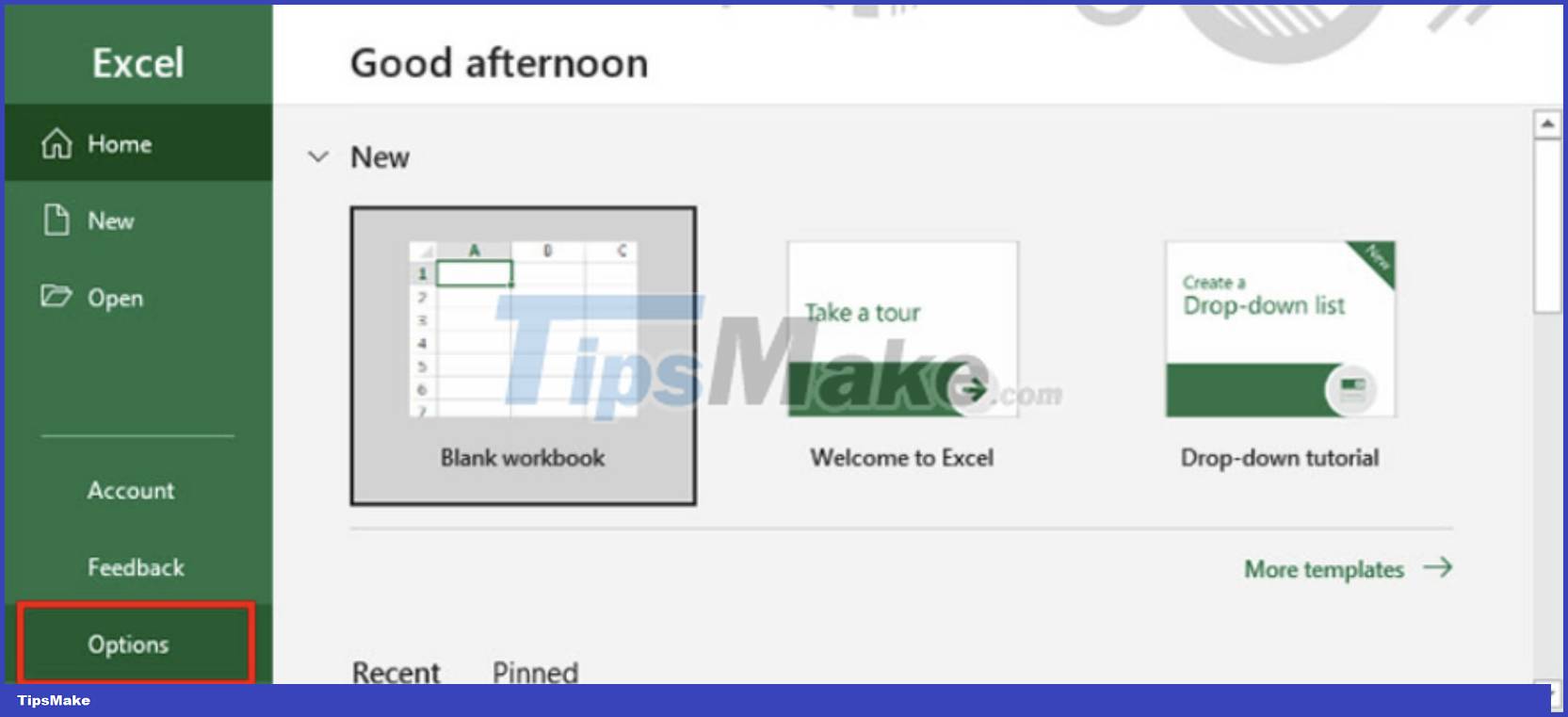
2. Click the Trust Center Settings button .

3. In Trust Center, select Protected View from the left sidebar. Uncheck all three options and save the changes.
